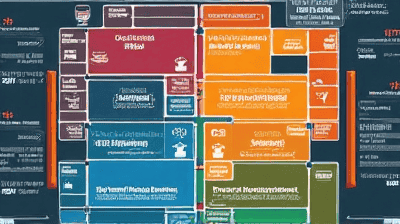Vocational Education

How Vocational Education Empowers Women in Non-Traditional Trades
In recent years, there has been a growing recognition of the importance of vocational education as a means to empower individuals and promote equality in the workforce. For women, vocational education offers a unique pathway to pursue careers in fields traditionally dominated by men, including engineering, construction, technology, and manufacturing. This article explores how vocational education empowers women in non vocational trades, the challenges they face, the benefits of vocational education, and the

The Role of Apprenticeships in Vocational Education: What You Need to Know
Vocational education has increasingly gained recognition as a critical pathway for students pursuing careers in various trades and technical fields. One of the most impactful components of vocational education is the apprenticeship model. Apprenticeships combine hands-on training with classroom learning, offering students invaluable experience while earning a wage. In this article, we will explore the role of apprenticeships in vocational education, the benefits they provide, the different types of apprenti

Bridging the Skills Gap: How Vocational Education Addresses Workforce Shortages
In recent years, the issue of workforce shortages and skill gaps in various industries has garnered significant attention. As economies evolve and technology advances, many employers find it challenging to locate candidates with the necessary skills and qualifications to fill critical job roles. Vocational education has emerged as a vital solution to address these workforce shortages by preparing individuals for specific careers through practical training and hands-on experience. This article explores the r

Financial Aid for Vocational Programs: Scholarships and Grants You Might Not Know About
Vocational education plays a vital role in preparing individuals for specific careers, particularly in fields such as healthcare, trades, technology, and the arts. As demand increases for skilled workers in these areas, vocational programs offer a practical and efficient pathway to good employment opportunities. However, the cost of vocational training can be a barrier for many prospective students. Fortunately, financial aid options such as scholarships and grants are available specifically for vocational

The Importance of Hands-On Training: How Vocational Education Prepares You for the Workforce
Vocational education has emerged as a critical pathway for students seeking to enter the workforce equipped with practical skills and knowledge. Unlike traditional education systems that focus primarily on academic learning, vocational training emphasizes hands-on experience and training in specific trades and careers. This article will explore the importance of hands-on training within vocational education, how it prepares students for the workforce, and the various benefits associated with this approach.

How to Prepare for Your Vocational Education Journey: Essential Tips and Resources
Vocational education, often referred to as career and technical education, provides students with the practical skills and knowledge needed to pursue specific careers. These programs are designed to prepare individuals for a wide range of occupations, from healthcare and trades to technology and creative arts. As more students recognize the value of vocational education, preparing for this journey becomes essential. This article offers a comprehensive guide on how to prepare for your vocational education jo

Continuing Education: Upskilling and Reskilling Through Vocational Training
In a rapidly changing job market, the need for skilled workers has never been greater. As industries evolve due to technological advancements and shifts in consumer demand, there is an increasing emphasis on continuing education and vocational training. This blog post will explore the significance of vocational education in the context of upskilling and reskilling, examining its benefits, the various programs available, and how individuals can effectively pursue vocational training to enhance their careers.

Top 10 In-Demand Trades: Choosing the Right Vocational Education Program for You
In today's rapidly evolving job market, vocational education has become a vital pathway for individuals seeking stable and rewarding careers. Vocational education programs equip students with practical skills and knowledge tailored to specific trades. As industries grow and change, certain trades remain in high demand, offering numerous employment opportunities. This article explores the top ten in-demand trades, the benefits of vocational education, how to choose the right program, and the essential factor

Success Beyond the Classroom: Building Professional Networks through Vocational Education
Vocational education, often referred to as career and technical education, offers students practical training and skills needed for specific careers. Unlike traditional academic pathways, vocational education focuses on hands-on learning that equips students for immediate employment. One crucial yet often overlooked aspect of vocational education is the opportunity it provides to build professional networks. In this article, we will explore the significance of networking within vocational education, the ben

The Importance of Soft Skills in Vocational Education: Preparing for Success Beyond Technical Skills
Vocational education and training (VET) play a crucial role in preparing individuals for successful careers in various fields, from manufacturing and healthcare to technology and hospitality. While technical skills are essential for performing specific tasks and functions, the importance of soft skills in vocational education cannot be overstated. This article will explore the significance of soft skills, their impact on employability, and ways to integrate them into vocational education curricula to ensure
